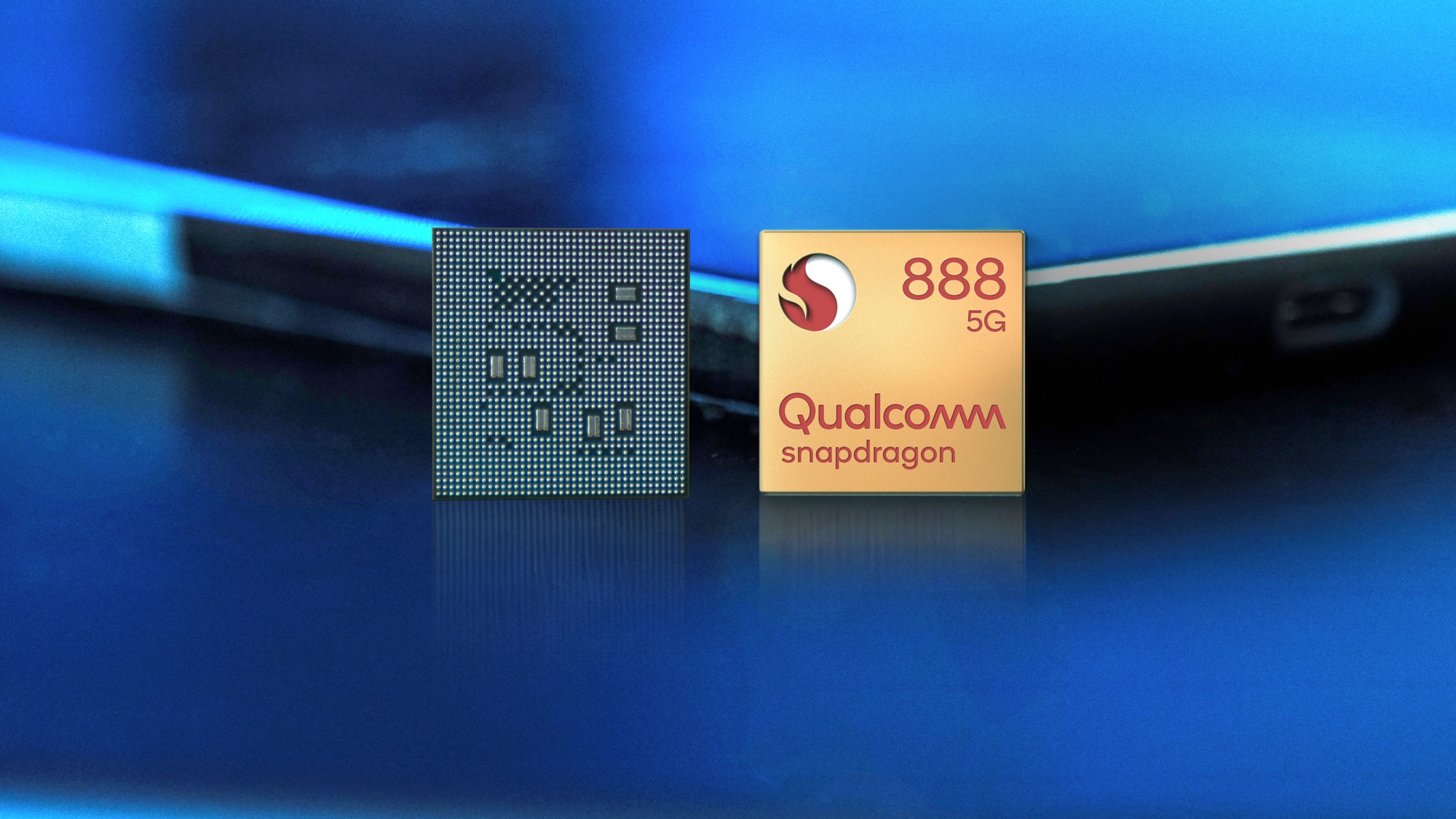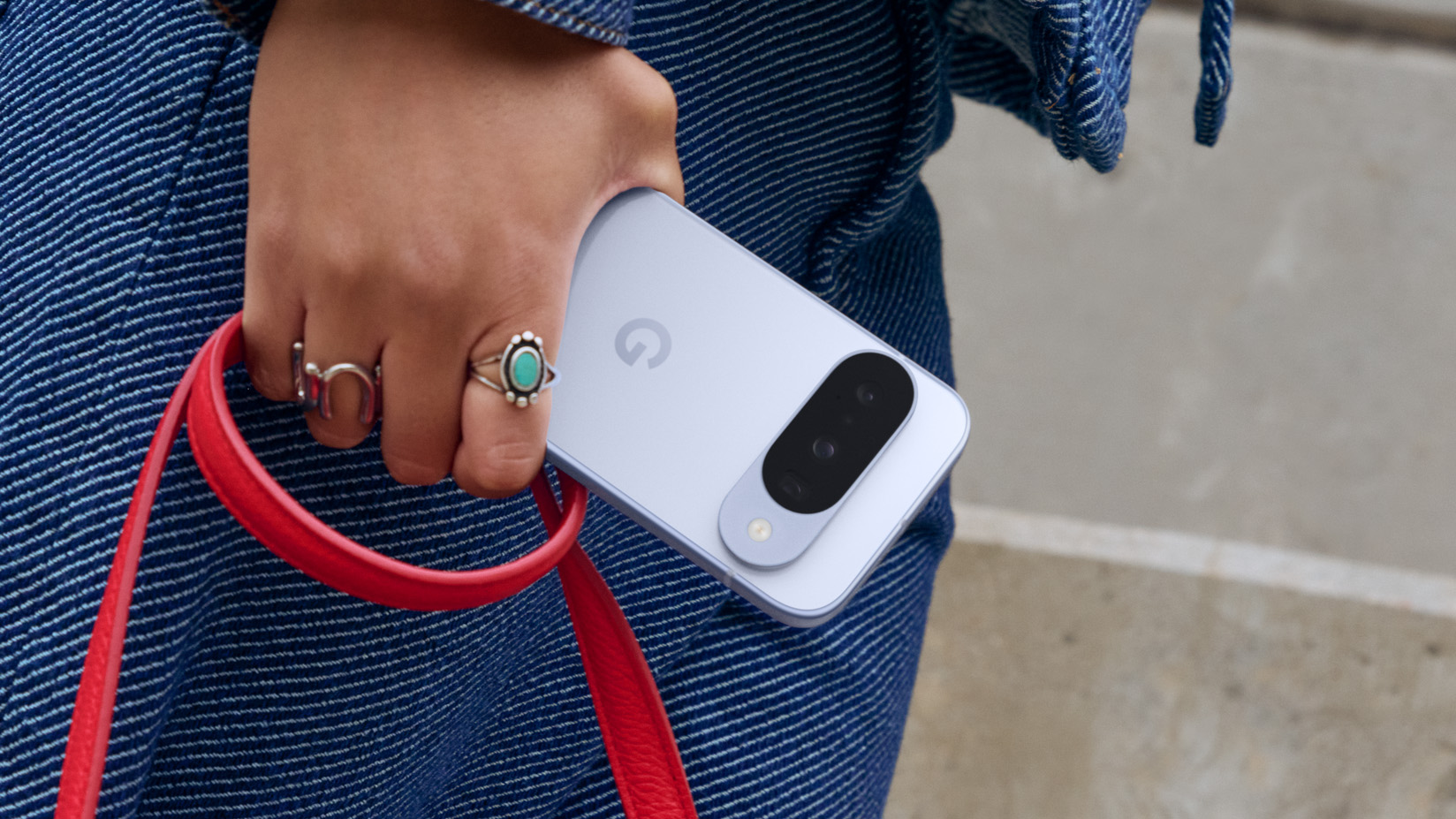Snapdragon 888 benchmarks: Galaxy S21 should put up a fight against iPhone 12
Initial benchmarks from Qualcomm show big gains for Android devices powered by the Snapdragon 888

The Snapdragon 888, Qualcomm's new system-on-chip should come very close to matching Apple's pace-setting A14 Bionic processor in many key benchmarks when it arrives in many of the leading Android phones next year, according to test results released by the chip maker today (Dec. 18). And that could potentially chip away at a big advantage the iPhone has lorded over its Android competition in recent years.
In the results put out by Qualcomm, the Snapdragon 888's numbers still don't beat the ones we recorded when we tested the latest iPhone 12 models this fall. But the gap is as narrow as it's been in some time.
- iPhone vs. Android: Which is better for you?
- Here are the best Android phones right now
- Plus: Samsung Galaxy S21 killer upgrade just leaked — and it's bad for iPhone 12
The coronavirus pandemic has altered the usual rollout plans for Qualcomm's new mobile processing platform. About this time of year, the chip maker normally invites a number of tech publications (including Tom's Guide) to test its newest chipset on a Qualcomm-supplied reference device. That's not feasible in an age of social distancing and stay-at-home orders, so for the Snapdragon 888, Qualcomm has offered up its own testing.
According to the chip maker, it ran its benchmark tests on a device with a 6.65-inch FHD screen that had a 120Hz refresh rate. The device included 12GB of RAM and 512GB of storage. One core of the CPU was clocked at 2.84GHz, while three others ran at 2.42GHz; the processor included four other 1.8GHz cores.
Qualcomm pointedly avoids naming which specific phones are going to feature its processing platforms, though it has confirmed that phone makers including LG, Motorola and OnePlus have committed to using the Snapdragon 888. The first phone to typically feature Qualcomm's new chipsets in the U.S. is Samsung's latest Galaxy S model, and with the Samsung Galaxy S21 rumored to be making a mid-January debut, we could find out what the Snapdragon 888 delivers sooner rather than later.
What the Snapdragon 888 promises
Of course, we already have some idea of what to expect from Snapdragon 888-powered devices, thanks to information supplied by Qualcomm when it unveiled the new system-on-chip earlier this month. Qualcomm says the Kryo 680 CPU on the Snapdragon 888 boosts performance by up to 25% from the current Snapdragon 865. It also allows top frequencies of up to 2.84GHz, so the main core on the reference device used in benchmarking is pushed to the max.

In terms of graphics, the Snapdragon 888 is supposed to speed up graphics rendering by up to 35% with its Adreno 660 GPU, Qualcomm says. What's more, that GPU can offer more power for devices with a larger thermal envelope or sustained use cases in flagship phones — it's all up to the phone maker how they choose to optimize their devices.
Get instant access to breaking news, the hottest reviews, great deals and helpful tips.
This is Qualcomm's first mobile processing platform built using a 5-nanometer process, which should boost both power and efficiency. Apple's A14 Bionic, featured in the iPhone 12 lineup, is also a 5nm chip.
Snapdragon 888 benchmark results
Based on the numbers Qualcomm's released, you can certainly see a big improvement with the Snapdragon 888 when running Geekbench 5. In this benchmark, which tests overall performance, Qualcomm's Snapdragon 888-powered reference device posted a single-core score of 1,135 and a multicore result of 3,794.
| Phone | Processor | Geekrbench 5 single-core score | Geekbench 5 multicore score |
| Snapdragon 888 reference device | Snapdragon 888 | 1,135 | 3,794 |
| Samsung Galaxy S20 Plus | Snapdragon 865 | 811 | 3,076 |
| Samsung Galaxy Note 20 Ultra | Snapdragon 865 Plus | 985 | 3,294 |
| Apple iPhone 12 | A14 Bionic | 1,593 | 3,859 |
That single core performance was a 40% improvement over the 811 score posted by the Galaxy S20 Plus, which uses a Snapdragon 865 chipset. The Galaxy S20 Ultra, running on the slightly more powerful Snapdragon 865 Plus, turned in a 985 result. On multicore tests, the Snapdragon 888 was 23% and 15% faster than the Galaxy S20 Plus and Galaxy Note 20 Ultra, respectively.
The A14 chip performs better than the Snapdragon 888 on Geekbench 5, but not significantly better, at least on the multicore test. When we tested the iPhone 12 earlier this fall, we saw a result of 3,859. That's a little less than 2% ahead of the result Qualcomm just posted. The gap's a little bigger on single-core results, where the iPhone 12 scored a 1,593.
| Phone | Processor | 3DMark Manhattan 1080p offscreen score | 3DMark Aztec Ruins Vulkan 1080p offscreen score |
| Snapdragon 888 reference device | Snapdragon 888 | 169 | 86 |
| Galaxy S20 Plus | Snapdragon 865 | 128 | 54 |
| iPhone 12 mini | A14 Bionic | 195.7 | N/A |
On the graphics side of things, the Snapdragon 888-powered device posted a 169-frames per second result on GFXBench's Manhattan 3.0 1080p offscreen test. We ran that same test on a Galaxy S20 Plus and came up with a score of 128 fps, a 32% jump. Still, the A14 should continue to reign supreme, as our iPhone 12 mini posted a 195.7 fps score.
Qualcomm also provided graphics numbers for GFXBench's Aztec Ruins Vulkan offscreen test at 1080p where the Snapdragon 888 chipset bested the Galaxy S20 Plus and its Snapdragon 865 process by 86 fps to 54 fps.
Snapdragon 888 outlook
The numbers from Qualcomm stand out in stark contrast to some of the early leaked benchmarks for the Galaxy S21, which painted a picture of a phone that was a little bit better than its predecessors, but not nearly as powerful as Apple's recent round of iPhones. We always suspected the benchmark leaks were a little off, though, as they might have featured early versions of the processor not yet optimized for top performance. Clearly, Qualcomm's numbers confirm that was the case.
While these new Qualcomm benchmarks give us a better idea of what to expect when the Snapdragon 888 starts showing up in phones like the Galaxy S21, it's not the last word on the subject. A lot will depend on how phone makers themselves decide to implement the system-on-chip and how they balance performance with power consumption.
In other words, we won't know definitively if the iPhone 12 has a performance fight on its hands until the first Snapdragon 888-based phones start showing up. We won't have long to wait — Qualcomm says those devices will launch during the first three months of 2021. And the Galaxy S21's rumored launch date is just around the corner.
Philip Michaels is a Managing Editor at Tom's Guide. He's been covering personal technology since 1999 and was in the building when Steve Jobs showed off the iPhone for the first time. He's been evaluating smartphones since that first iPhone debuted in 2007, and he's been following phone carriers and smartphone plans since 2015. He has strong opinions about Apple, the Oakland Athletics, old movies and proper butchery techniques. Follow him at @PhilipMichaels.
 Club Benefits
Club Benefits






